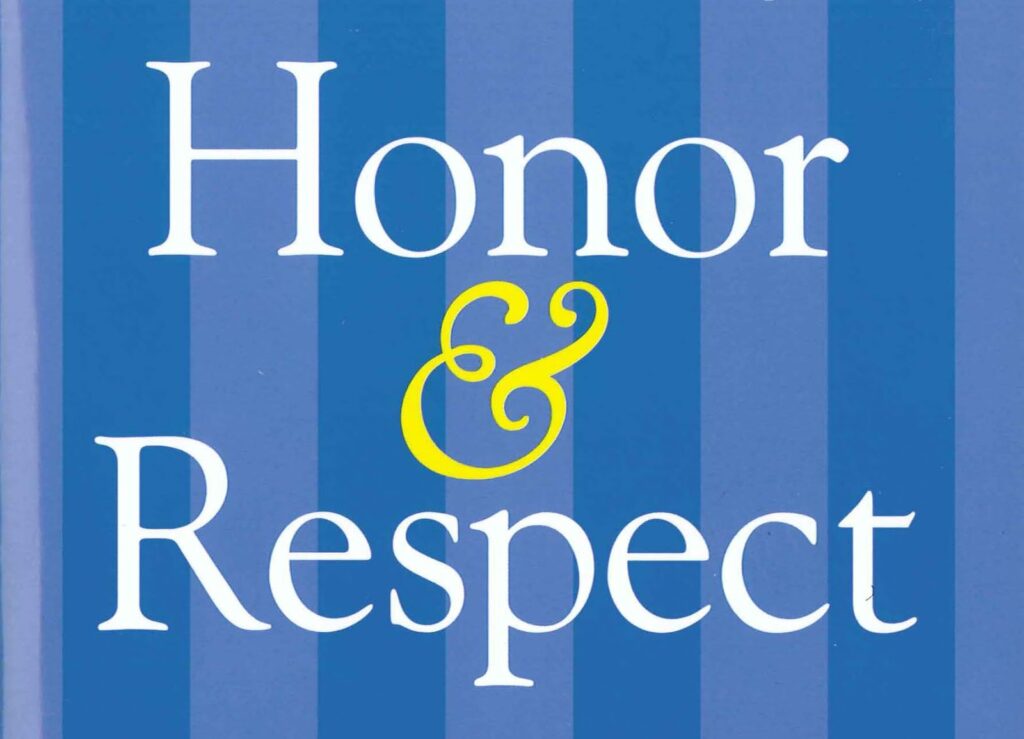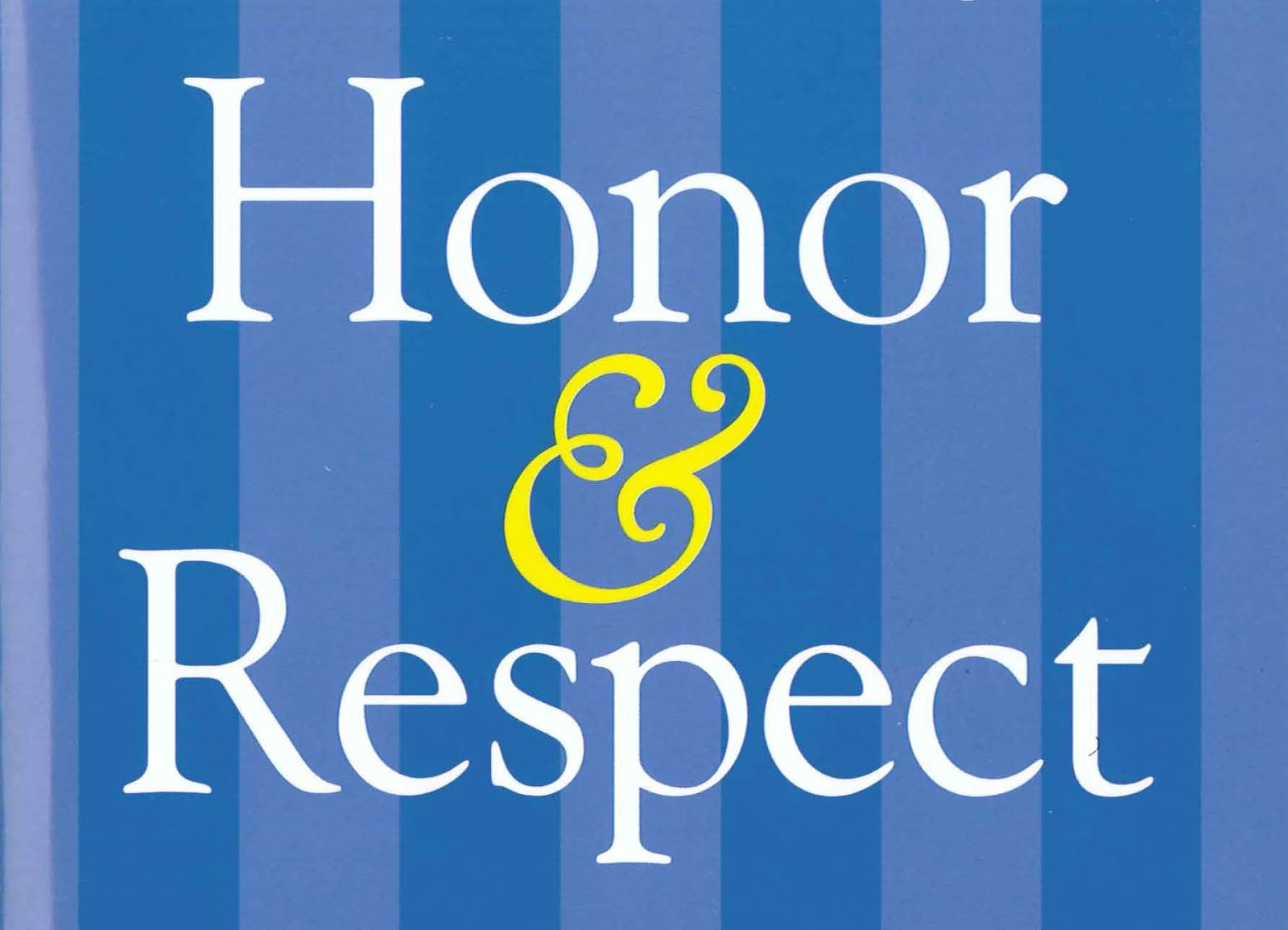
Showing Honor: Why Respect and Recognition Matter More Than Ever
In a world often characterized by rapid change and fleeting connections, the concept of showing honor might seem like an antiquated notion. Yet, the principles of respect, recognition, and esteem remain profoundly relevant, shaping our relationships, communities, and even our individual well-being. This article delves into the multifaceted importance of showing honor, exploring its historical roots, contemporary applications, and the tangible benefits it brings to both the giver and the receiver.
The act of showing honor is not merely a social nicety; it’s a fundamental building block of a healthy society. When we acknowledge the worth and contributions of others, we foster a culture of mutual respect and appreciation. This, in turn, strengthens social bonds, promotes cooperation, and encourages individuals to strive for excellence. But what does it really mean to show honor in today’s complex world, and how can we effectively cultivate this practice in our daily lives?
The Historical Roots of Honor
The concept of honor has deep historical roots, tracing back to ancient civilizations where it was often intertwined with notions of social standing, duty, and moral virtue. In many cultures, honor was not simply a personal attribute but a collective value, influencing social interactions, legal systems, and even warfare. Think of the samurai code of Bushido, the chivalry of medieval knights, or the intricate honor systems of ancient Greece and Rome. These historical examples highlight the enduring human need for recognition and the profound impact that showing honor can have on shaping societal norms and behaviors.
However, the historical understanding of honor was not without its flaws. Often, it was associated with rigid social hierarchies and exclusionary practices, leading to injustices and inequalities. Modern interpretations of showing honor seek to retain the positive aspects of respect and recognition while rejecting the negative connotations of elitism and discrimination.
Contemporary Applications of Showing Honor
In contemporary society, showing honor manifests in various forms, from simple acts of courtesy and gratitude to more formal expressions of recognition and commendation. In the workplace, it might involve acknowledging an employee’s outstanding performance, celebrating team achievements, or providing opportunities for professional development. In personal relationships, it could mean actively listening to a loved one, expressing appreciation for their support, or celebrating their accomplishments. And in the broader community, it might involve volunteering time, donating to charitable causes, or advocating for social justice.
Showing honor extends beyond individual interactions; it also encompasses institutional practices and policies. Organizations that prioritize ethical behavior, transparency, and accountability are essentially showing honor to their stakeholders – employees, customers, and the wider community. Similarly, governments that uphold the rule of law, protect human rights, and promote social equality are showing honor to their citizens.
Showing Honor in the Workplace
The workplace is a critical arena for showing honor. Employees who feel valued and respected are more likely to be engaged, productive, and loyal. Conversely, a workplace characterized by disrespect, discrimination, or lack of recognition can lead to low morale, high turnover, and decreased productivity. Managers can foster a culture of honor by providing regular feedback, recognizing achievements, promoting teamwork, and creating opportunities for growth and development. [See also: Employee Recognition Programs: A Comprehensive Guide]
Furthermore, showing honor in the workplace involves creating a safe and inclusive environment where all employees feel valued and respected, regardless of their background, identity, or beliefs. This requires actively addressing issues of discrimination and harassment, promoting diversity and inclusion, and fostering a culture of open communication and mutual understanding. When employees feel that their contributions are valued and that they are treated with respect, they are more likely to thrive and contribute to the success of the organization.
Showing Honor in Personal Relationships
Showing honor is equally important in personal relationships. Strong, healthy relationships are built on a foundation of mutual respect, trust, and appreciation. This means actively listening to your loved ones, expressing your gratitude for their support, and celebrating their accomplishments. It also means being honest and transparent in your communication, respecting their boundaries, and acknowledging their feelings. [See also: Building Stronger Relationships Through Effective Communication]
Showing honor in personal relationships also involves forgiveness and understanding. No relationship is perfect, and disagreements and conflicts are inevitable. However, by approaching these challenges with empathy and a willingness to compromise, you can strengthen your bond and demonstrate your commitment to the relationship. Remember, showing honor is not about always agreeing; it’s about treating each other with respect and kindness, even when you have different opinions or perspectives.
Showing Honor in the Community
Showing honor extends beyond individual relationships and encompasses the broader community. This means contributing to the well-being of society by volunteering your time, donating to charitable causes, or advocating for social justice. It also means respecting the rights and dignity of all members of the community, regardless of their background, identity, or beliefs. [See also: The Importance of Community Involvement]
Showing honor in the community also involves holding institutions and leaders accountable for their actions. This means demanding transparency, ethical behavior, and social responsibility from businesses, governments, and other organizations. By actively participating in civic life and advocating for positive change, you can help create a more just and equitable society for all.
The Benefits of Showing Honor
The benefits of showing honor are far-reaching and profound. On an individual level, it can lead to increased self-esteem, improved relationships, and a greater sense of purpose and fulfillment. When you feel valued and respected, you are more likely to believe in yourself and your abilities. This, in turn, can lead to greater success in your personal and professional life.
On a societal level, showing honor can foster a culture of mutual respect, cooperation, and trust. This can lead to stronger communities, more effective governance, and a more just and equitable society for all. When individuals feel that their contributions are valued and that they are treated with respect, they are more likely to contribute to the well-being of the community. Showing honor fosters a sense of belonging and shared purpose, which can help to overcome divisions and promote social cohesion.
Furthermore, showing honor can have a positive impact on the economy. When employees feel valued and respected, they are more likely to be engaged, productive, and innovative. This can lead to increased profitability, improved customer satisfaction, and a stronger competitive advantage. Similarly, when businesses prioritize ethical behavior and social responsibility, they are more likely to attract and retain customers, investors, and employees. Showing honor is not just a moral imperative; it’s also a smart business strategy.
Challenges in Showing Honor
Despite the numerous benefits of showing honor, there are also challenges in practicing it consistently. In a fast-paced, competitive world, it can be easy to overlook the importance of respect and recognition. We may become so focused on our own goals and ambitions that we forget to acknowledge the contributions of others. Additionally, cultural differences, biases, and prejudices can make it difficult to show honor to those who are different from us.
Another challenge is the temptation to prioritize short-term gains over long-term relationships. In business, this might mean cutting corners, exploiting workers, or deceiving customers in order to increase profits. In personal relationships, it might mean prioritizing your own needs and desires over the needs and desires of your loved ones. However, these short-term gains often come at the expense of trust, respect, and long-term sustainability. Showing honor requires a commitment to ethical behavior, transparency, and social responsibility, even when it’s not the easiest or most convenient path.
Cultivating a Culture of Honor
Cultivating a culture of showing honor requires a conscious and deliberate effort. It starts with individual awareness and a commitment to treating others with respect and kindness. It also requires creating systems and structures that promote ethical behavior, transparency, and social responsibility. This might involve implementing employee recognition programs, establishing codes of conduct, or advocating for social justice policies.
Leaders play a critical role in cultivating a culture of showing honor. By modeling ethical behavior, promoting open communication, and recognizing the contributions of others, leaders can set the tone for the entire organization. They can also create opportunities for employees to learn about diversity and inclusion, develop their emotional intelligence, and practice empathy and compassion. Showing honor starts at the top and permeates throughout the entire organization.
Conclusion: The Enduring Value of Showing Honor
In conclusion, showing honor is not just a social nicety; it’s a fundamental building block of a healthy society. By acknowledging the worth and contributions of others, we foster a culture of mutual respect, cooperation, and trust. This, in turn, strengthens social bonds, promotes individual well-being, and encourages individuals to strive for excellence. While there are challenges in practicing showing honor consistently, the benefits are far-reaching and profound. By cultivating a culture of showing honor in our personal relationships, workplaces, and communities, we can create a more just, equitable, and fulfilling world for all.

